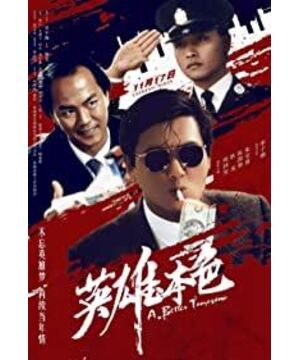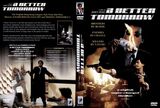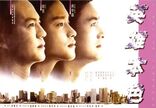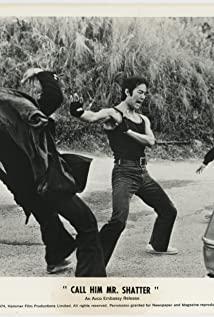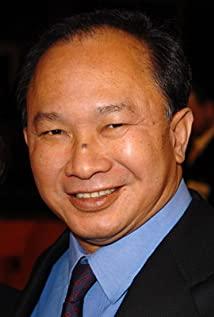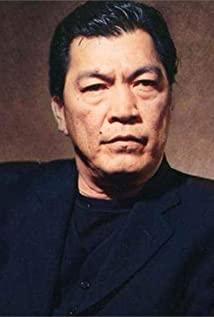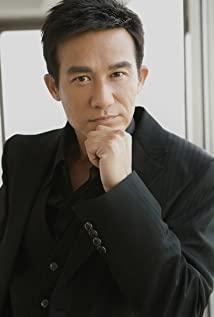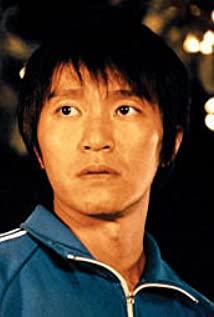The classic status of "The True Colors of Heroes" does not need to be explained, and more argumentation is needed. For any media's list of classic Hong Kong movies in the history of film history, "The True Colors of Heroes" is an indispensable movie. The ballet-style indulgent and violent scenes, Chow Yun-fat wearing sunglasses, holding a match, and wearing a coat, Yi Bo Yuntian's brotherhood is a classic memory of generations of Chinese movie fans and even Asian movie fans. For a long time, "The True Colors of Heroes" has almost defined everything about Hong Kong movies for mainland fans. For movie fans who believe in "feelings greater than the sky", this is almost an indisputable movie bible.
Criticism certainly exists, and many of them come from Hong Kong. Roca believes that Wu Yusen is "extremely narrow and sensual, sometimes unavoidable to create affection for literature." Li Zhuotao's point of view is, "Wu Yusen's passionate action movies are often overwhelmed by us, but Western genre fans see it happily, because of this. Believe that it’s rare to see Western movies of this type without any distractions."
Unrestrained venting of emotions is almost a concentrated criticism of Wu Yusen's films. "The True Colors of Heroes" is just such a movie that is extremely stylized. Roca's criticism of "creating emotion for the sake of literature" is quite pertinent, but Wu Yusen's style defect is not unique to him. It is actually an important tradition of Chinese film style ─ ─ the legacy of bitter drama. The bitter love drama is an extremely important genre of early Chinese movies that is deeply influenced by the tradition of "shadow drama", such as "Black Book Injustice", "Yuguang Music", "Rainbow Pear Flower", "Peach and Plum Tribulation", and "New Women". Movies that are worshipped by audiences are all tear-jerking dramas that immerse the theater audience in a sad experience. Right and wrong, kindness, love and hate, praise and criticism, black and white must be distinct, the way of expression must be exaggerated and stimulating, and the initial and final footing must be around moral conflict (the drama of bitterness is essentially a moral and ethical drama). This is the most distinctive artistic feature of Kuqing Opera. Parents and children, brothers and sisters, all human relations conflicts can be the object of misery drama, the main point is to make the whole situation in misery. And the effect of this kind of misery is essentially different from the sublime sense of western tragedy. The drama of suffering has nothing to do with the absurdity and absoluteness of fate, the questioning of deep meaning, and it ignores the rational spirit's grasp and exploration of the infinite world. So even in those days, Zheng Zhengqiu had already pointed out the artistic naivety of the miserable drama, but there seemed to be no other way to attract the audience. The gentlemen who draw on the material must be mindful, neither too cruel nor less irritating.” Cai Chusheng further emphasized, “Strengthen the stimulating elements of everything in the description, and adopt some stimulating materials with Chinese characteristics. "So when it comes to comparing the East and the West, the drama of bitterness is closer to Douglas Syk's tear-gas popular drama. "Liang Shanbo and Zhu Yingtai", "The Wrong Car", "Mom Loves Me Again", "French Love", "Tangshan Earthquake", these movies that have created huge box office on both sides of the strait are actually in the category of painful dramas.
Wu Yusen, who used to be born on the Shaw Brothers studio and directed the Cantonese opera film "Emperor Flower", knows the essence of the success of the bitter drama. "The True Colors of Heroes" extremely exaggerates the friendship between brothers and friends. The more important rendering technique is contrast (this is also a conventional technique in bitter drama), which stimulates the audience's emotions by strong contrast. Song Zihao's personality is forbearing, while Jie Zai's personality is impulsive. Song Zihao has been silently accepting, and Jiezi has been provocative and attacking. The more important contrast comes from the strength of affection. The long-lasting friendship and loyalty between Song Zihao and Mark, Song Zihao and Jie Zai are full of misunderstanding and contradictory brotherhood. In order to highlight the earth-shaking relationship between Song Zihao and Mark, Jiezai was even treated as a relatively negative character in the film. This is also the killer feature of the film that stimulates the audience's strong emotional response.
The good people get wronged and the weak get deceived are also an important type of protagonist in misery drama. Song Zihao, who was so regretful and begged to give him a chance to start again, was not forgiven by his younger brother Jiezai. This relationship is generally in line with the type of injustice. Song Zihao and Mark also have a very strong tendency to be abused. In the face of overwhelming censure and violence, the two have an incredible endurance. This is actually a major feature of the protagonist of the bitter drama.
The contrast in the film is not only manifested in character settings, but also in a large number of plot settings. Soon after the opening, there was a parallel montage. On one side is the downfall of Song Zihao in prison, and on the other side is the scene of Jiezi's vigorous training in the police force. The heaviest contrast comes from Mark brother. At that time, he was very high-spirited, but later he became lame and wiped his car to make a living. The former immature brother, Ah Cheng, has become a big brother, and he beats and scolds him at every turn. This kind of huge contrast technique is also easier to stimulate the audience. Of course, this is not smart, and it feels a bit cheap if you watch too much. Similar to the comedy effect caused by slipping on a banana chip.
The most exaggerated rendering comes from violence. According to Wu Yusen’s own statement, “Many people will vent their emotions when they see people being beaten.” The violent scenes in "The True Colors of Heroes" are overwhelming. Mark is often in a state of blood and blood. Wu Yusen also loves slow motion performance. The slight movement posture that twists the body and face after being attacked. It can be said that the emotions of the entire movie "Heroes" are almost in a state of catharsis. Wu Yusen once said that Scorsese is "his long-term idol." From this point of view, the two are completely the same. However, there are major and fundamental differences between the two in handling plots. We can ignore the ambiguity and irrationality of the plot of a drama film that focuses on singing, because the huge assumption is the premise for the establishment of the drama film. But "Heroes" is after all a modern police action film released in 1986. If we completely ignore the irrationality of the plot, are the requirements for the film too low? The consequence of "The True Colors of Heroes" is "making emotions for the sake of the literary" is leaving behind as dense plot loopholes as a hornet's nest.
Regardless of his posture and behavior, Song Zihao is not like a gangster. Criminal gangs and gangs are not exactly the same thing. Even after Ah Cheng came to power, the film's performance of Hong Kong gangs was too exaggerated. This was of course a common problem in Hong Kong movies of that era (ironically, the Hong Kong gangs later began to imitate the costumes of the characters in the film). It was not until the appearance of Johnnie To’s gangster films that the gangster images of Hong Kong films were elevated to a new level of rich meaning.
The comparison methods mentioned above are too many and lack rationality. After Mark's lameness, why did he have to beat Ah Cheng? The start of the fight is just the lowest level work of wiping the car. Furthermore, Mark has always said that he has been waiting for an opportunity for three years, but is there any inevitable cause and effect relationship between this and hitting Ah Cheng? Why does Ah Cheng want to frame Jiezi and shoot him? Isn't his purpose to use him to justify his crimes? Ah Cheng went on to beat Brother Mark. This is another spectacular scene of violence. The slow motion shows organ spurting. But why is this necessary? I can't see the purpose of beating Mark. Just to show Ah Cheng's evil, or Mark's misfortune, then it is purely to vent. Some detailed plot processing is even more self-contradictory. Ah Cheng sent someone to smash the taxi line. Song Zihao persuaded everyone not to do it, and he returned to the criminal once he did it. Finally, after persuading others, he himself made a big fight, and the boss of the car dealer persuaded Song Zihao again with the same words. This is simply dumbfounding funny scene. Jie Zai got the computer CD with criminal evidence, and didn't want to hand it in immediately, because he seriously lacked basic vocational training. After Song Zihao gave the computer CD to Jie Zai, he inexplicably told him where he would fight Ah Cheng. If you think about your younger brother, isn't this purely superfluous? The first violent scene of the film, namely the murder of his father, is too exaggerated. The killer smashed his head into the glass, his face was scalded by hot water, his body was inserted by a knife, and his energy counterattacked, which is incredible. This scene can only be understood as an exaggeration of violence. The most unbearable sound part is the theme song "Love of the Year" (the style is also sorrowful), which is repeated dozens of times. In the Hong Kong film industry in the 1980s and 1990s, where the importance of the theme song is very high, it is rarely seen. This playback density.
A big help in performance for bitter drama comes from Song Zihao's actor Di Long. Ti Lung, who was originally Zhang Che's disciple, has the most typical style of acting, which is of course inseparable from his long-term experience of being immersed in Shaw Brothers' martial arts films. Dillon's peak was in the 1960s and 1970s. With the decline of Shaw Brothers, Dillon's stardom gradually fell. Before starring in "The True Colors of a Hero", Dillon had already bid farewell to his superstar status. "The True Colors of a Hero" brought Ti Lung back to the public eye. In "The True Colors of Heroes", Wu Yusen reuses Ti Lung to play the role of Song Zihao. His way of acting in the whole movie must be required by the overall bitter drama style of the movie. Suffering drama can easily lead to the actors’ performance style leading to the style of opera. The style of opera is stylistic, freehand, symbolic, hypothetical, and stage. Actors are more about shaping the common side of the types of roles they play, that is, the symbolic side, rather than the individualized side of the actor who is very different from other actors. To zoom in, this is the most serious problem in the performance of early Chinese film actors, even in the so-called classics such as "Spring in a Small Town", this problem also exists. The stage space where the opera actors are located is essentially different from the screen space where the movie actors are located. Copying as it is without adjustment will inevitably lead to a different effect and be eliminated by modern audiences. Hollywood movies and Japanese movies solved this problem at the beginning of the birth of sound movies. The performance styles of Chow Yun-fat and Leslie Cheung in this film are completely inconsistent with Ti Lung. Although the characters of the two roles are very different, they can be relatively real and natural. "The True Colors of a Hero" made Ti Lung popular, but his stardom hasn't changed substantially since then. On the contrary, Dillon’s golden partner Jiang David, at least kept his acting life on the TVB TV screen that inherited the Shaw Brothers style.
The most contradictory aspect of "The True Colors of Heroes" is that the film uses the most modern American lens language (as Bodwell summarized), but the narrative form is the most stale "shadow drama" traditional model of bitterness and emotion, and the motif is emphasized. It is the reconstruction of the broken family, the restoration of brotherhood and the publicity of friendship, and the traditional Confucian ethical connotations of loyalty, filial piety and justice. The problem is that blindly exaggerating Confucianism and venting violent emotions blindly regardless of the basic logic of the plot. Is this really a classic that transcends the times?
View more about A Better Tomorrow reviews


